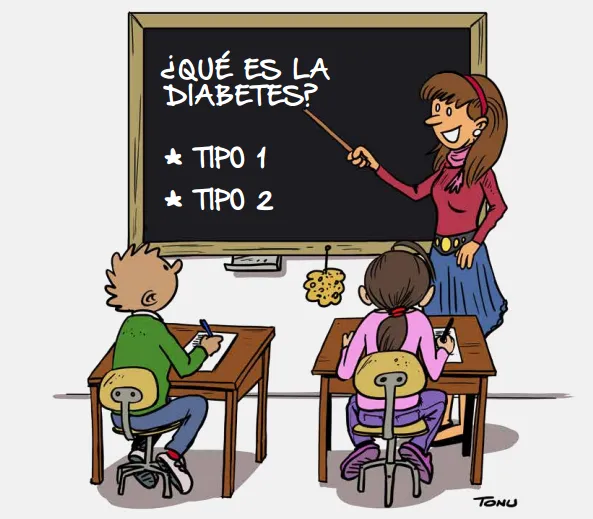A legislative initiative aims to train managers, teachers, teachers and school staff of educational establishments in the province, regarding how to act against students who may present problems for suffering from type I and II diabetes.
Deputy Martín Berhongaray (FREPAMP) presented a bill so that the Ministry of Health of the province articulate training days for leaders and teachers to be trained in the resolution of situations that children and adolescents with diabetes can present in the school environment
The initiative takes as an annex the “Children and Diabetes in the School” program developed by the International Diabetes Federation.
The legislator proposes that "in all public and/or private schools in the province, a primary level, didactic material that contributes to training."
In the foundations, it indicates that Resolution No. 61/225 of the United Nations, it is clear that diabetes has become a real concern for the world authorities, in addition to warning those responsible for the health organizations of each country over therisks that it contains, due to its high prevalence and continuous expansion, becoming a worldwide pandemic.In this sense, the UN considers that the main tools to combat this disease are prevention and education.
in the province.
Berhongaray recalls that our province, through Law No. 1,245 and the recently sanctioned provincial law No. 2,919, has echoed this situation, encouraging the prevention and control of this disease throughout the provincial territory, and generatingSpaces that contribute to the education of all sectors of society regarding this issue.
“I consider that the school environment must become a bastion in help regarding diabetes prevention and control.For this, it is essential to provide spaces that contribute to the training not only of the people suffering from this disease and their relatives, but also those who live with them day by day within the school environment, ”he says.
He adds that “the entire teaching and non -teaching team of educational establishments can provide the necessary assistance so that the schooling of children and adolescents with type I and II diabetes develop normally.
They must have sufficient and adequate information regarding this issue.Training is essential to provide them with the information and tools necessary to improve the capacity to respond to possible situations that children and adolescents suffering from diabetes can present within the school environment. ”


